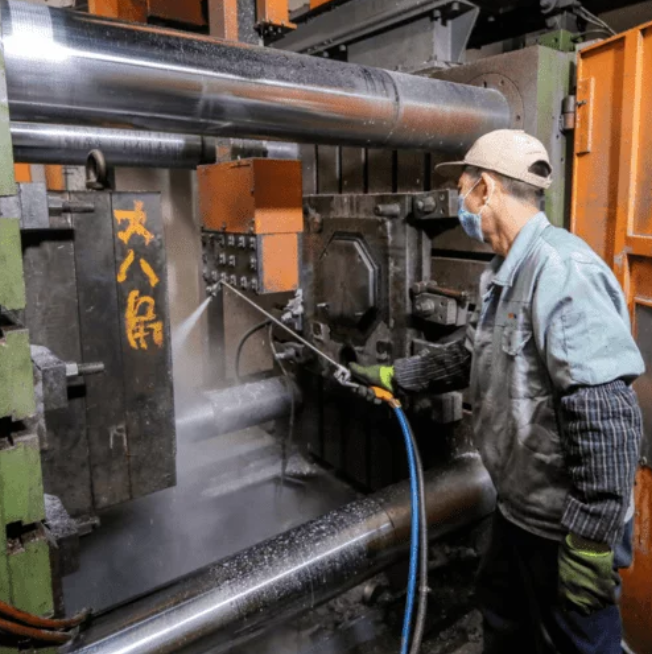Introduction:
In the realm of manufacturing, efficiency and precision are two vital factors that can make or break a company\’s success. Machined casting, also known as precision casting or investment casting, is a manufacturing process that aims to streamline production and enhance precision. This article will explore the benefits, applications, and future prospects of machined casting.
What is Machined Casting?
Machined casting is a manufacturing process that involves the production of complex and intricate metal components. It starts with the creation of a wax or thermoplastic pattern, which is then coated with a ceramic shell. The pattern is melted or burnt out, leaving behind a hollow cavity. Molten metal is poured into this cavity, creating the desired shape. Once the metal has solidified, the ceramic shell is removed, and the part is cleaned and finished through machining processes.
Benefits of Machined Casting:
1. Design Flexibility: Machined casting offers unparalleled design flexibility, allowing for the production of intricate and complex components that are difficult to achieve through other manufacturing processes. It enables the production of parts with thin walls, fine details, and undercuts, which are not feasible with traditional machining techniques.
2. Cost-Effective: Machined casting is a cost-effective manufacturing process, especially for small to medium-sized production runs. It eliminates the need for expensive tooling and reduces material waste, resulting in lower production costs. Additionally, the ability to combine multiple parts into a single casting reduces assembly time and labor costs.
3. Superior Surface Finish: Machined casting produces parts with excellent surface finish and dimensional accuracy. The ceramic shell used in the process creates a smooth and consistent surface, reducing the need for extensive post-processing. This results in high-quality parts that require minimal additional machining.
4. Material Versatility: Machined casting is compatible with a wide range of materials, including ferrous and non-ferrous metals, alloys, and even certain ceramics. This versatility allows manufacturers to select the most suitable material for their application, considering factors such as strength, durability, and corrosion resistance.
Applications of Machined Casting:
1. Aerospace Industry: Machined casting plays a crucial role in the aerospace industry, where precision and reliability are of utmost importance. It is used to manufacture critical components such as turbine blades, engine parts, and structural elements. The design flexibility and material versatility of machined casting make it an ideal choice for these complex and high-performance applications.
2. Automotive Industry: The automotive industry extensively relies on machined casting for the production of engine blocks, cylinder heads, transmission components, and other intricate parts. Machined casting allows for lightweight designs, improved fuel efficiency, and reduced emissions. The cost-effectiveness and precision of this process make it highly suitable for large-scale automotive production.
3. Medical Equipment: In the medical field, machined casting is utilized for the production of surgical instruments, implants, and prosthetics. The ability to create detailed and intricate shapes ensures the accuracy and functionality of these critical medical devices. Machined casting also allows for the use of biocompatible materials, ensuring patient safety and compatibility.

Future Prospects:
As manufacturing technology advances, so does the potential of machined casting. The incorporation of computer-aided design (CAD) and computer-aided manufacturing (CAM) systems has further improved the precision and efficiency of the process. Additionally, the development of advanced materials, such as superalloys and titanium alloys, has expanded the possibilities of machined casting in high-stress and high-temperature applications.
Furthermore, additive manufacturing techniques, such as 3D printing, can be integrated with machined casting to create hybrid manufacturing processes. This combination allows for the production of complex parts with internal structures that are challenging to achieve through traditional machining or casting alone.
Conclusion:
Machined casting offers significant advantages in terms of design flexibility, cost-effectiveness, surface finish, and material versatility. Its applications span across industries such as aerospace, automotive, and medical equipment. With ongoing technological advancements and the integration of additive manufacturing, the future prospects of machined casting are promising. This manufacturing process will continue to play a vital role in streamlining production and enhancing precision in the manufacturing industry.
-

- Bicikli za djecu Dječji bicikli za djecu od 3-16 godina /OEM Baby Dječji biciklistički dječji planinski bicikli 2022.
-

- Poklopac kućišta laptopa C
-

- OEM die-casted parts& components
-

- Legura magnezijuma Thixomolding Power Batter Kućište
-

- Proizvedena srednja ploča za macbook po meri metalnih delova
-

- Thixomolding magnesium parts & components mobile phone middle board

 0086-750-5616188
0086-750-5616188 +86 13392089688
+86 13392089688 sales@zhongmei-tech.com
sales@zhongmei-tech.com







